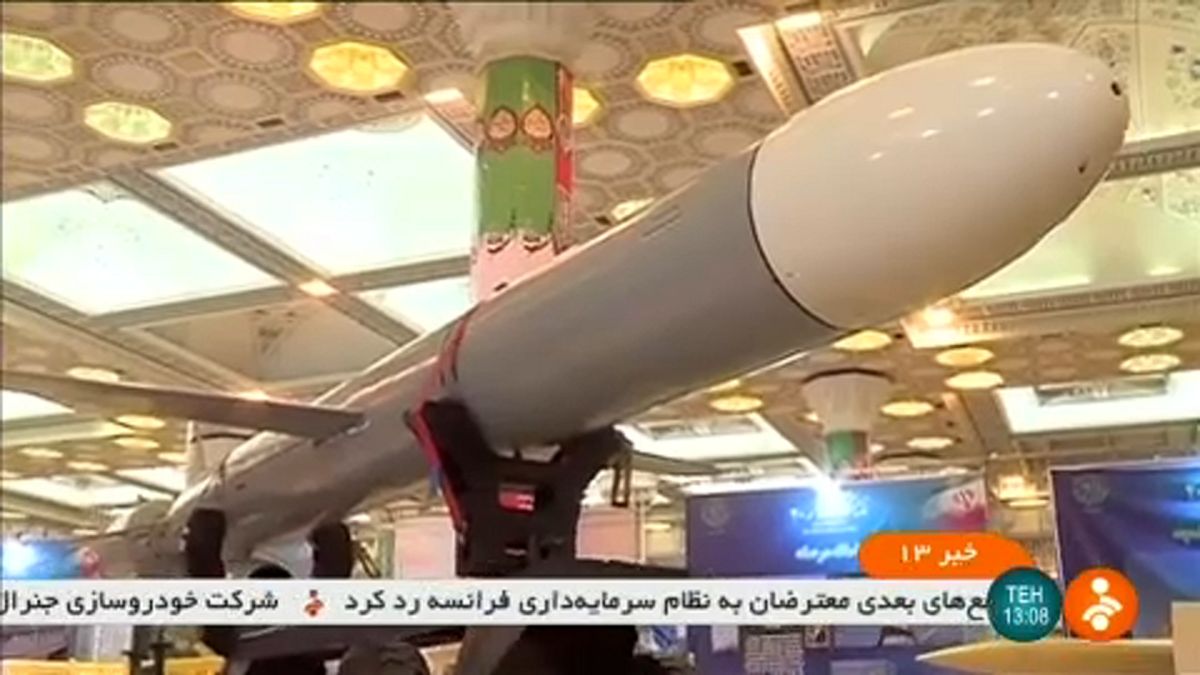Iran has unveiled a new criuse missile with a range of thirteen hundred kilometres, putting it in range of one of its biggest enemies, Israel.
On the fortieth anniversary of its Islamic Revolution Iran has unveiled a new surface-to-surface missile with a range of thirteen hundred kilometres.
That puts it in range of one of its biggest enemies, Israel.
Iran has expanded its missile programme, particularly its ballistic missiles, in defiance of opposition from the United States and expressions of concern by European countries.
Tehran says the programme is purely defensive.
"This cruise missile needs a very short time for its preparedness and can fly at a low altitude," Defence Minister Amir Hatami said during the unveiling ceremony.
Named Hoveizeh, it's from the Soumar family of cruise missiles, which Iran added to its arsenal in 2015, Hatami said.
Western experts say Iran often exaggerates its weapons capabilities, although there are concerns about its long-range ballistic missiles.
Amirali Hajizadeh, head of the Revolutionary Guards' aerospace division, said at the event Iran had overcome initial problems in producing jet engines for cruise missiles and could now manufacture a full range of the weapons.
Since agreeing to a 2015 nuclear deal with world powers,
Iran has expanded its missile programme despite warnings from the United States.
In January, it tried to launch a satellite into space which it said failed.
The launch followed a U.S. warning to Iran against undertaking three planned rocket launches that Washington said would violate a U.N. Security Council resolution.
The resolution, which enshrined Iran's nuclear deal, called upon Tehran to refrain for up to eight years from work on ballistic missiles designed to deliver nuclear weapons.
Iran says its missile tests are not in violation of the resolution and denies its missiles are capable of carrying nuclear warheads.
It says its missiles are defensive and used for deterrence and has rejected talks over its missile programme.
U.S. President Donald Trump quit the deal last year and reimposed sanctions on Iran that had been lifted under the pact in return for Tehran curbing its nuclear programme.
Washington says although Iran has met the terms, the accord was too generous, failing to rein in Iran's ballistic missile programme or curb what the United States says is interference in regional affairs.
Iran has developed a large domestic arms industry in the face of decades-long international sanctions and embargoes that have barred it from importing most weapons.


